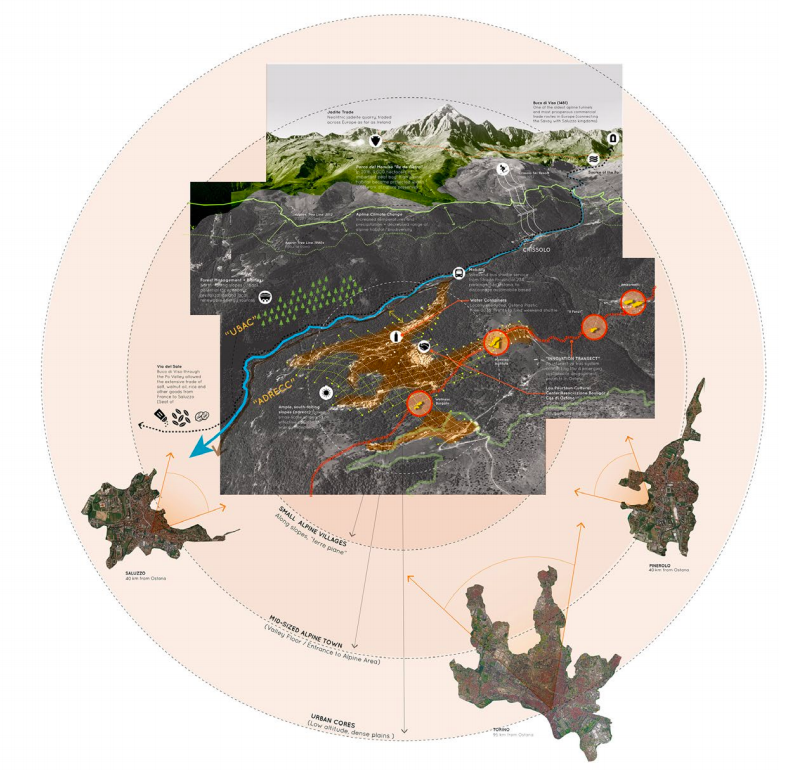Haley Fitzpatrick - Alpine Circularity: Regenerating Mountain Communities through Systems-Oriented Design
Major societal transformations are urgently needed to restore our planet’s livability and solve interrelated social and climate injustices. In the last decades, sustainability, green action plans and eco-friendliness have been considered a choice, not a moral obligation, to adopt within government policy, private companies, educational institutions and the design of the built environment.
Image by Haley Fitzpatrick
We have gained significant progress in the science that could be applied to heal our broken planet. Yet translating this knowledge into carbon-positive, ecologically, and socially regenerative solutions across different scales and global contexts is hindered by the dysfunctional, linear, and siloed socio-economic and political models that govern our communities. How can we advance beyond standardized sustainability techniques and patchworked results, to instead leverage multi-perspectival and adaptive responses to design more livable and co-existent futures?
Thinking circularly (no waste, continuous re-use) and systemically (holistic, interconnected networks) is fundamental to more equitably designing community-distinct, climate-responsive solutions, especially within highly vulnerable landscapes. Through the framework of Systems-Oriented Design (SOD), I aim to explore and develop adaptive tools that link different expertise and practices, from professional insight to local community knowledge, in order to collaboratively design sustainability transitions that are aligned with place-specific identities.
Although I envision the proposed design tools as a flexible approach to be applied across various contexts, I primarily aim to frame this project within vulnerable alpine landscapes because challenging territorial and climatic conditions have uniquely shaped human settlements and cultural exchange within and around mountains. Developing platforms for research-community partnerships that empower different world views and frame regenerative adaptations as stimulating opportunities instead of risky consequences, is critical for successful transitions to collective self-sufficiency and resiliency in alpine territories.
Attempting to achieve as holistic, equitable and thoughtful approach as possible, I am investigating how transdisciplinary methods could be synthesized to address my research questions, from the fields of cartography, environmental psychology, landscape architecture, history and ecology. Specific methods currently being investigated are cartographic spatial analysis techniques, cognitive mapping, giga-mapping, ethnographic methods, creative writing, community based-participatory research, and participatory drawing.

